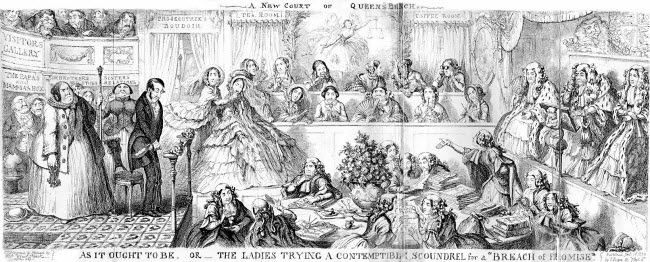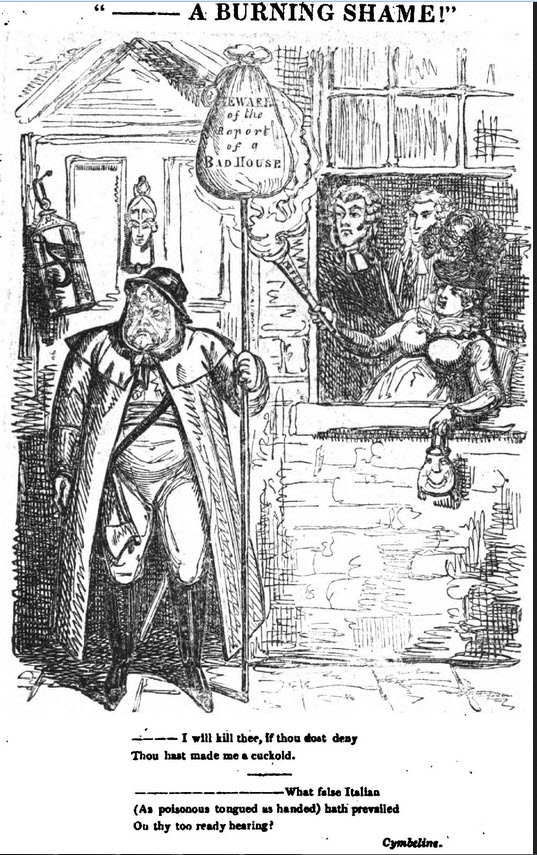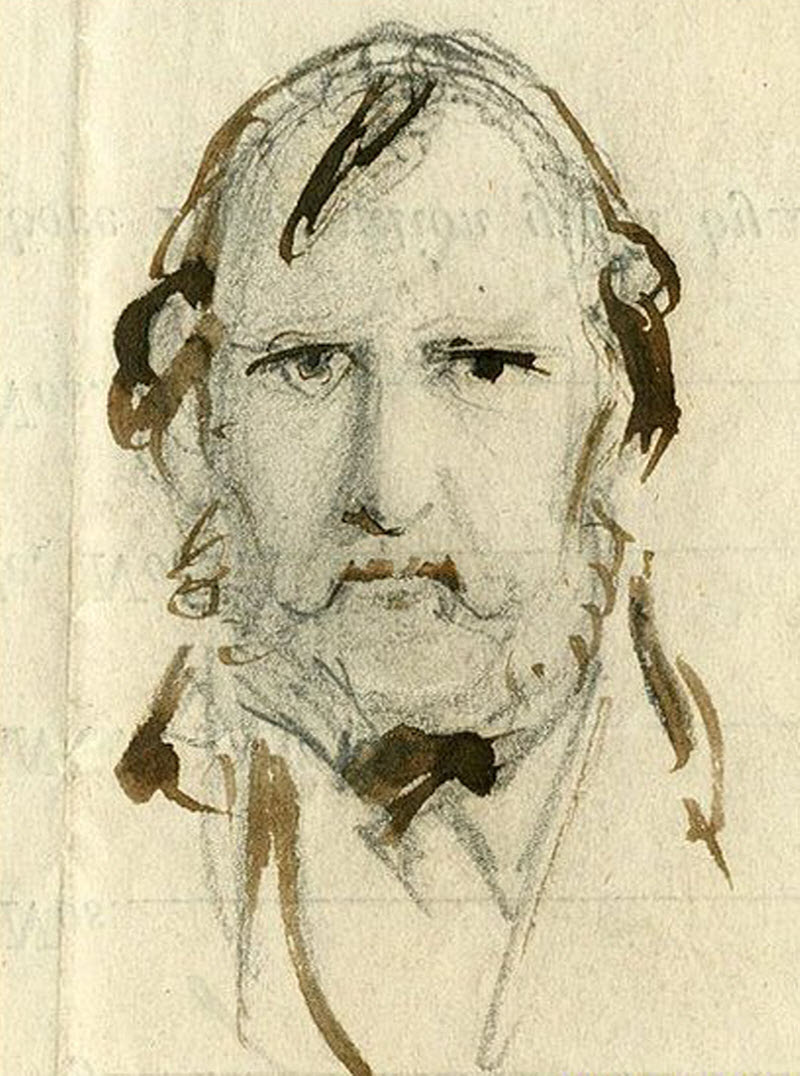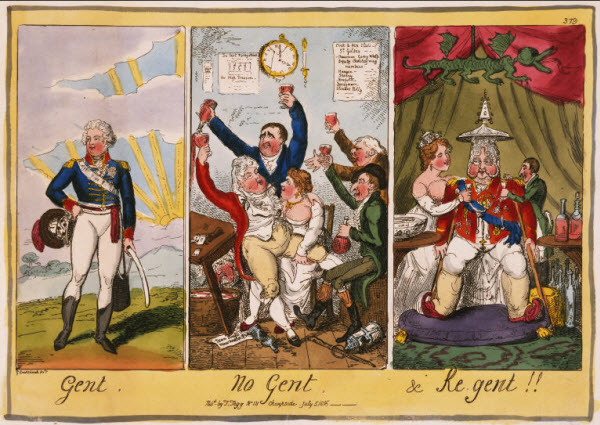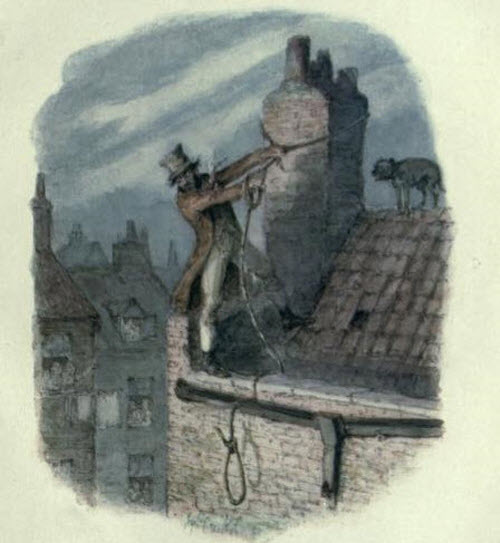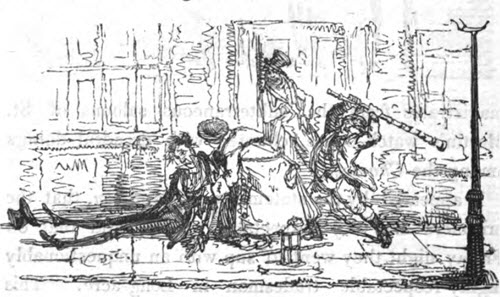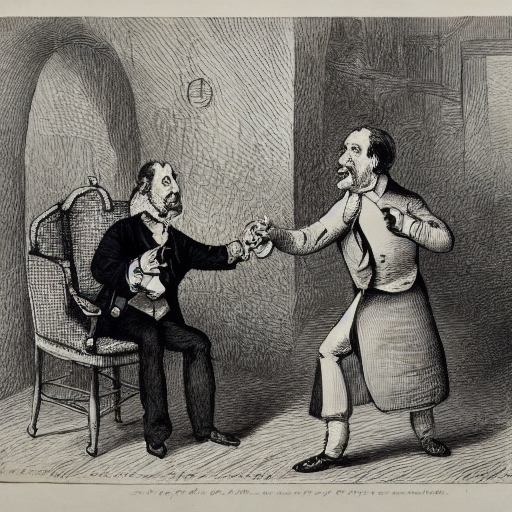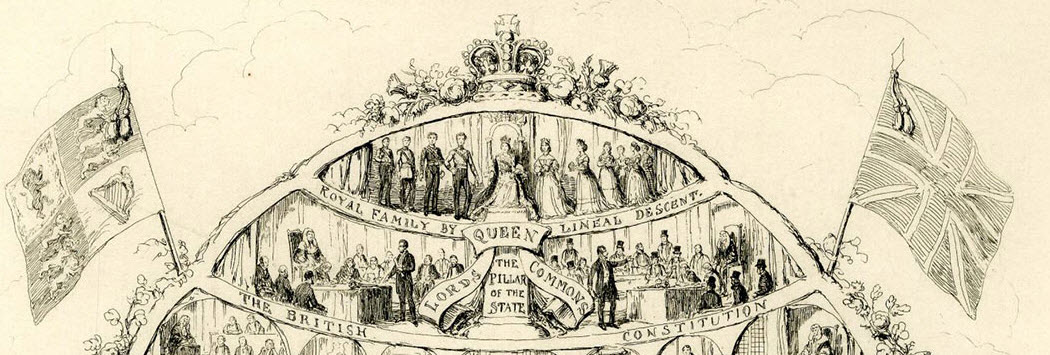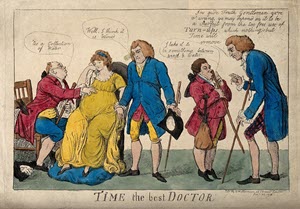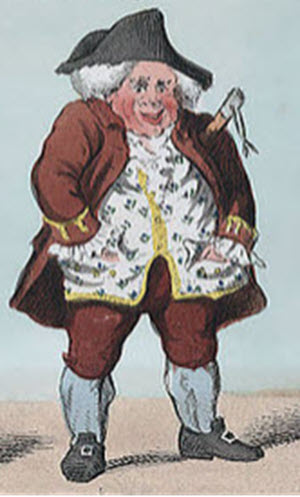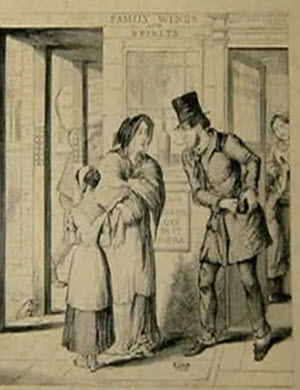During his long career, George Cruikshank drew many cartoons satirizing political life and politicians. The drawing he was most proud of was a simple drawing of a One Pound Note, depicting hanged forgers. Cruikshank credited this simple drawing with ending the practice of executing small time forgers and saving the lives of many thousands.
The story of this Bank Note and its effect on social policy is interesting, and suggests the importance of Cruikshank as an artist. It is a practical example of the pen truly being mightier than the sword.

One day Cruikshank had some business near the Bank of England. As he passed the Old Bailey, he happened to see several people including two women, hanged in gibbets. There was a large crowd looking on. On asking what was their crime, Cruikshank learned to his disgust that these women had been hanged for passing forged One Pound Notes. For a mere pound, these unfortunate women had lost their lives.
In order to pass the forged notes with little risk to themselves, currency forgers would often recruit unfortunate women from the lower classes to go into the gin shops and buy themselves a drink with one of the forged one pound note, and then give the forger the change. When the woman was caught she would either be transported to the colonies such as Australia, or she would be hanged.
Cruikshank was disgusted. As he stated later, "The fact that a poor woman could be put to death for such a minor offence had a great effect on me -- and I at that moment determined, if possible, to put a stop to this shocking destruction of life for merely obtaining a few shillings by fraud ... after witnessing this tragic scene, I went home, and in ten minutes designed and made a sketch of This Bank-Note Not to Be Imitated." The name of the drawing is an ironic reference to the prohibition on the bank note against making copies.
The publication of this satiric Bank Note created a sensation and helped stir public sentiment against executions for minor forgeries. The immediate effect was that the Bank of England withdrew all one pound notes from circulation, so that there were no more forgeries of this instrument and therefore no more executions. Not long afterwards, Parliament passed a bill abolishing the death penalty for minor forgeries all together. For the remainder of his life Cruikshank took great pride in the changes that he had helped bring about:
I consider it ["Bank Note Not to be Imitated"] the most important design and etching that I ever made in my life; for it saved the lives of thousands of my fellow creatures; and for having been able to do this Christian act I am indeed most sincerely thankful."
Cruikshank's other political caricatures were not always as significant or progressive. Here is a caricature that Cruikshank drew ridiculing the concept of women in political office or gaining voting rights:
